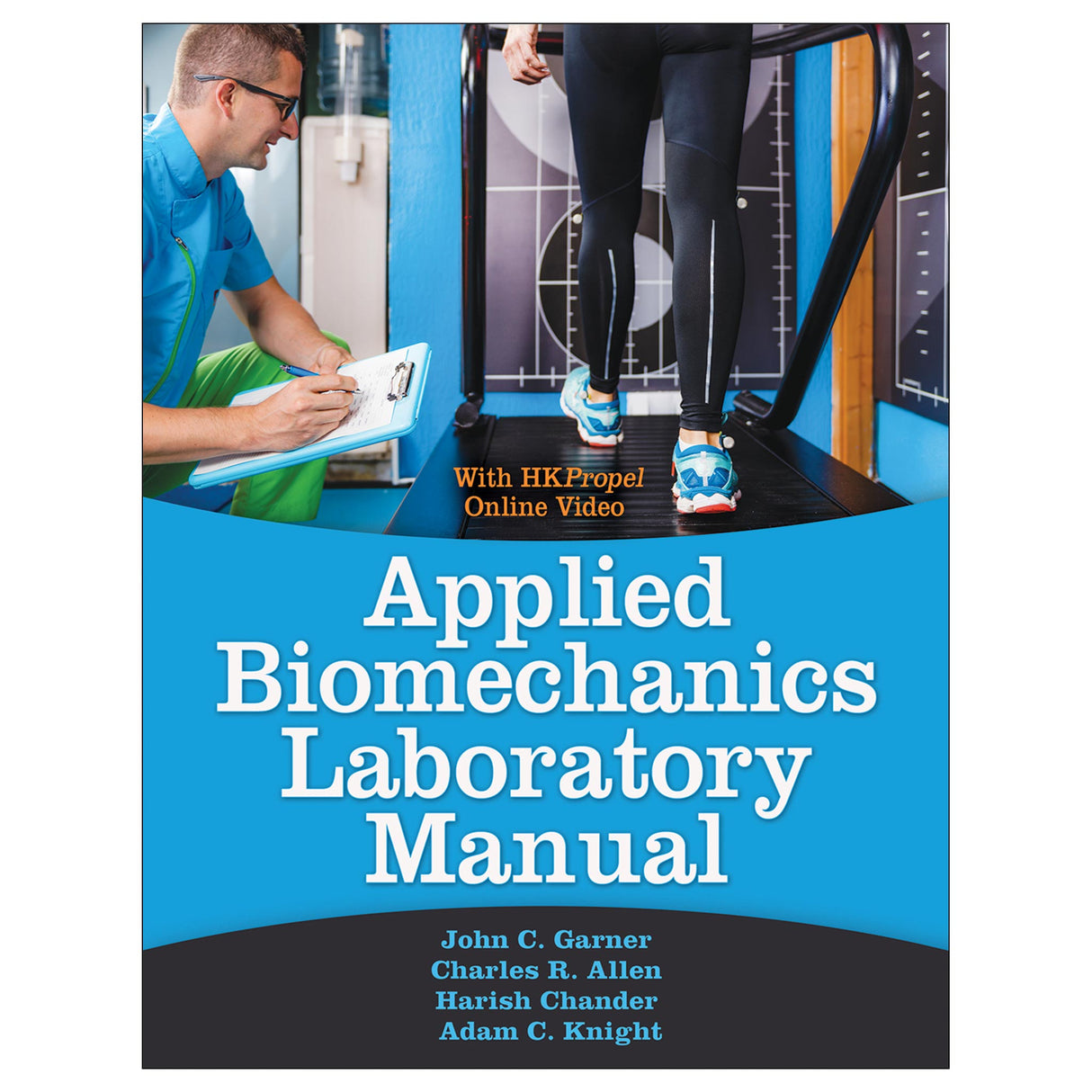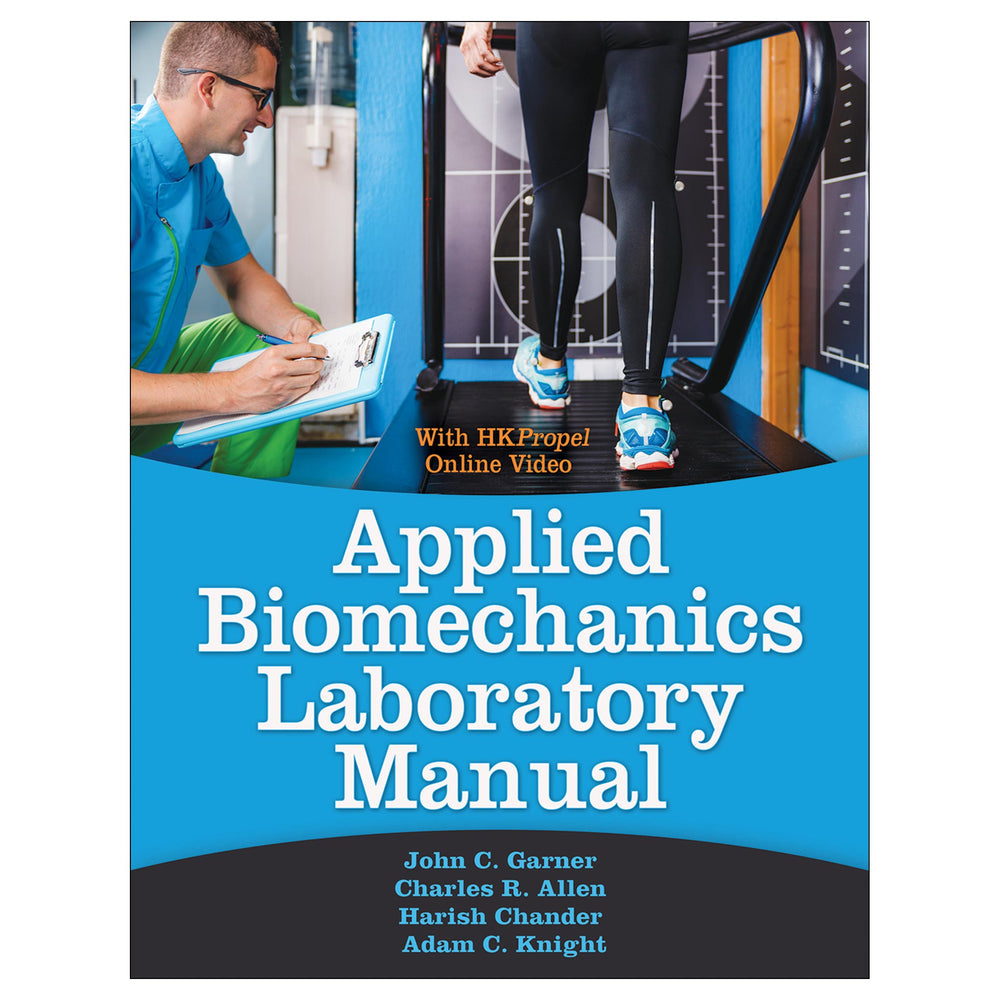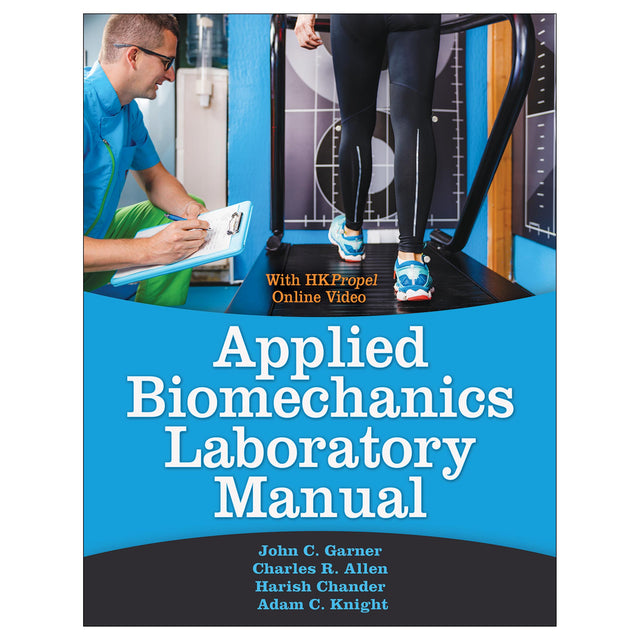Ebook With Online Video
Applied Biomechanics Laboratory Manual Ebook With HKPropel Online Video
$87.95 CAD
Unit price
/
Unavailable
Ebook With Online Video
$87.95 CAD
$87.95 CAD

Ebook With Online Video
Applied Biomechanics Laboratory Manual With HKPropel Online Video provides guided opportunities for students to connect their conceptual understanding of biomechanics to practical applications. As readers progress through 13 easy-to-follow experiential-based learning labs, they will gain insight into how these mechanical principles relate to areas such as sport performance, athletic injury, ergonomics, and rehabilitation. This manual engages students with full-color images as well as visual aids. It is an ideal primary or supplemental text for any biomechanics and kinesiology curriculum.
Applied Biomechanics Laboratory Manual comprises 13 laboratory chapters that offer over 30 lab activities. Each laboratory chapter provides at least one complete lesson, including objectives, key terms, and introductory content that set the stage for learning. Each lab activity is broken down into step-by-step procedures, providing guidance for those new to lab settings so that they may complete the process with confidence. Related online learning tools delivered through HKPropel include digital versions of the forms found in the book as well as online video clips that simulate the experience of performing many of the lab activities.
The text is organized in a logical progression that builds on the knowledge students acquire as they advance. Written by instructors with a variety of teaching experiences in the field of biomechanics, the multiple lab activities are designed so they can be completed in any educational setting. Each lab activity begins with a recommended equipment list to facilitate lesson preparation. A list of recommended data analysis software tools is provided in some equipment lists. For educational settings where no data analysis software is available, data is provided so students can complete the laboratory reports for the lab activity.
Applied Biomechanics Laboratory Manual gives students an opportunity to observe the principles of biomechanics in action. The manual serves as a high-quality resource for students to learn how to perform basic laboratory testing procedures used in assessing human performance and body mechanics.
Note: A code for accessing HKPropel is included with this ebook.
Applied Biomechanics Laboratory Manual comprises 13 laboratory chapters that offer over 30 lab activities. Each laboratory chapter provides at least one complete lesson, including objectives, key terms, and introductory content that set the stage for learning. Each lab activity is broken down into step-by-step procedures, providing guidance for those new to lab settings so that they may complete the process with confidence. Related online learning tools delivered through HKPropel include digital versions of the forms found in the book as well as online video clips that simulate the experience of performing many of the lab activities.
The text is organized in a logical progression that builds on the knowledge students acquire as they advance. Written by instructors with a variety of teaching experiences in the field of biomechanics, the multiple lab activities are designed so they can be completed in any educational setting. Each lab activity begins with a recommended equipment list to facilitate lesson preparation. A list of recommended data analysis software tools is provided in some equipment lists. For educational settings where no data analysis software is available, data is provided so students can complete the laboratory reports for the lab activity.
Applied Biomechanics Laboratory Manual gives students an opportunity to observe the principles of biomechanics in action. The manual serves as a high-quality resource for students to learn how to perform basic laboratory testing procedures used in assessing human performance and body mechanics.
Note: A code for accessing HKPropel is included with this ebook.
Audience
Undergraduate students taking biomechanics courses. Laboratory 1. Movement Terminology
Laboratory 2. Goniometry and Anthropometry
Laboratory 3. Linear Kinematics in One Direction
Laboratory 4. Linear Kinematics in Two Directions
Laboratory 5. Projectile Motion: Jumping and Kicking
Laboratory 6. Projectile Motion
Laboratory 7. Angular Kinematics
Laboratory 8. Linear Kinetics: Ground Reaction Forces
Laboratory 9. Linear Kinetics: Force Variables Influencing Vertical Jump Performance
Laboratory 10. Angular Kinetics and Levers
Laboratory 11. Work, Power, and Energy
Laboratory 12. Postural Control and Balance
Laboratory 13. Gait and Locomotion
Laboratory 2. Goniometry and Anthropometry
Laboratory 3. Linear Kinematics in One Direction
Laboratory 4. Linear Kinematics in Two Directions
Laboratory 5. Projectile Motion: Jumping and Kicking
Laboratory 6. Projectile Motion
Laboratory 7. Angular Kinematics
Laboratory 8. Linear Kinetics: Ground Reaction Forces
Laboratory 9. Linear Kinetics: Force Variables Influencing Vertical Jump Performance
Laboratory 10. Angular Kinetics and Levers
Laboratory 11. Work, Power, and Energy
Laboratory 12. Postural Control and Balance
Laboratory 13. Gait and Locomotion









